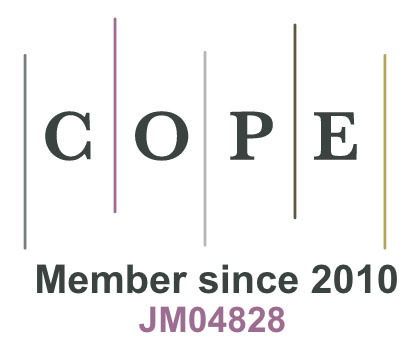Promoting Culturally Safe Prenatal Care
The current featured article from ANS 42:2 is titled “Understanding Mi’kmaq Women‘s Experiences Accessing Prenatal Care in Rural Nova Scotia” authored by Laura Burns, BScN, RN; Joanne Whitty-Rogers, PhD, RN; and Cathy MacDonald, PhD, RN. Based on their study of Mi’kmaq women’s experiences accessing prenatal care, the authors reveal steps that are needed to improve culturally safe prenatal care for women at risk. Here is a message providing the interesting background of this work from lead author Laura Burns:

Laura Burns being presented with the University Gold Medal in Nursing Award for the highest average in the final three years of study by StFX President, Dr. Kent MacDonald, and former StFX Chancellor, Dr. Susan Crocker.
I am so pleased to have this research study published in the ANS current issue: Culture, Race & Discrimination. I began this study as an undergraduate honours nursing student at St. Francis Xavier University. With the support and guidance of my previous supervisor, Dr. Joanne Whitty-Rogers, and second reader, Dr. Cathy MacDonald, I continued this work following graduation in 2017. I had the opportunity to attend the 44th Annual Conference of the Transcultural Nursing Society in San Antonio, Texas as a presenter. This international conference included over 260 participants from 48 cultures and more than 14 countries. Speakers and attendees included a diverse and global array of transcultural nursing and healthcare experts. The conference was an incredible experience for a novice researcher, as I engaged directly with theorists and providers from administrative, educational, practice, and research settings in a variety of panel discussions and breakout sessions.
Indigenous women experience a higher incidence of maternal complications compared with non-Indigenous women. Despite this, little is known about access to prenatal care for Mi’kmaq women in Nova Scotia. The purpose of this research study was to better understand the experiences of Mi’kmaq women accessing prenatal care in rural Nova Scotia. This was achieved using a Two-Eyed Seeing approach, by incorporating Indigenous and Participatory Action Research (PAR) principles to conduct research in a Mi’kmaq community. By using a feminist lens, Mi’kmaq women’s lived experiences were captured in a respectful manner, so as to legitimate their voices as sources of knowledge. Their experiences with access to prenatal care were used as a basis for building knowledge.
My early education of the Mi’kmaq people of Nova Scotia was essentially through the lens of Caucasian, Euro-Canadian perspectives. The importance of gaining an understanding of Mi’kmaq people’s experiences from their own perspectives became important to me during my first year of nursing school, when I was introduced to the concept of cultural safety. I recognized that nurses have the responsibility to continuously learn, and by listening to the stories of Mi’kmaq women’s experiences I developed an understanding of what it is like to navigate the Canadian health care system from a perspective that is much different from my own. I remained aware of potential perceived power imbalances, as a non-Indigenous undergraduate student, I asked participants to share details of their personal maternal experiences. The participants’ willingness and eagerness to share their experiences and offer suggestions to combat issues with access to prenatal care confirmed the importance of establishing partnerships with Mi’kmaq women, as they know what they need to improve their own health and the health of their community.
The findings from this study highlight key implications for nursing practice such as promoting the nurse’s role in supporting and advocating for Mi’kmaq women’s health and for providing culturally safe care. Throughout this study, it was evident that mothers, sisters, grandmothers, and aunties are significantly relied on for support, especially in regard to seeking reassurance and information. Colonization did much to destroy women’s ways of knowing about motherhood, however, many of these traditions still carry on, highlighting Indigenous mother’s strength and resiliency over time. This research will highlight that access to prenatal care is a complex issue for some women. Through this research process, it became evident that inequities in the social determinants of health impact women in accessing adequate prenatal care. Although barriers were identified, it is important to mention that all the participants in this study felt that they received the best prenatal care possible and were pleased with the care they received. This was especially true for the care and education the women received from the Health Centre in their community.
In an otherwise affluent society, Canada’s Indigenous women experience a disproportionate burden of maternal complications due to negative social determinants of health. Nurses have the responsibility to recognize these health inequities in practice, and advocate for clients and families. Nurses must play a key role in recognizing and addressing power imbalances within the health care system, so that equitable care may be achieved for all Canadians.

Laura Burns presenting her research study titled “Understanding Mi’kmaq Women’s Experiences Accessing Prenatal Care in Rural Nova Scotia” at the 44th Annual Conference of the Transcultural Nursing Society in San Antonio, Texas, October 2018.




